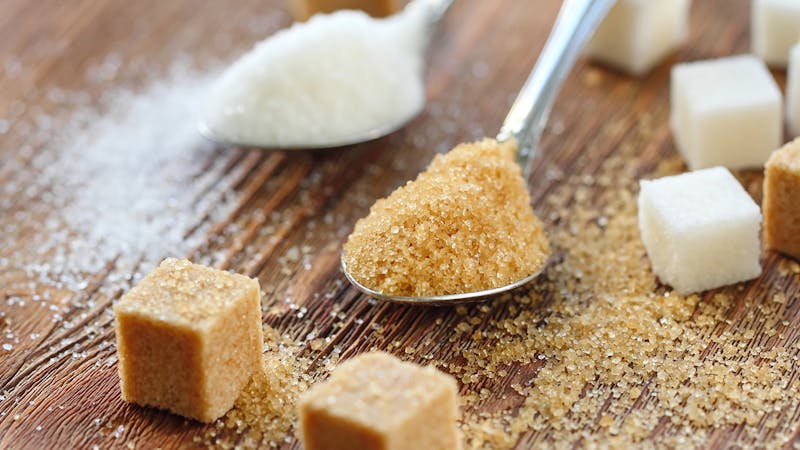Should you count calories on a low-carb or keto diet?
- What are calories?
- How many calories do carbs, protein, and fat provide?
- Calories count, but they are not the whole story
- The bottom line
What are calories?
A calorie is a unit of energy your body uses to perform hundreds of tasks. These include voluntary movements like walking, running, and jumping, as well as involuntary ones like breathing, circulating blood throughout your system, and maintaining normal body temperature.
Your body needs to burn a certain number of calories just to keep those involuntary processes going. This is referred to as your basal metabolic rate, or BMR. Your BMR is influenced by many factors, including age, gender, body composition, and genetics.1
You require additional calories for physical activity, including walking. Overall, the more active you are, the more calories you need.
How many calories do carbs, protein, and fat provide?
Each macronutrient provides a specific number of calories:2
- Carbs: 4 calories per gram
- Protein: 4 calories per gram
- Fat: 9 calories per gram
Although there are foods that contain only a single macronutrient, the calories in most foods come from a combination of carbs, protein, and fat.4
Calories count, but they are not the whole story
Generally speaking, if you take in more calories than your body needs, the extra calories will be stored as fat. Similarly, if you take in fewer calories than needed, your body will release its fat stores, and you will lose weight.
Because of this, some contend that calories are all that matter.5 All you have to do to lose weight is reduce calories.
It sounds simple, but humans are more complicated than that.
There’s far more to weight regulation than just monitoring calories in vs. calories out.6 Indeed, most members of the human race appear to have regulated their weight effectively for millennia, before anyone even knew what a calorie was.7
The modern obesity epidemic seems to be an unprecedented phenomenon, and it coincides with an ever-increasing focus on counting calories.8 At best, counting calories seems to be an imperfect strategy for weight control.
So what’s really going on? As it turns out, hormonal regulation is a key factor and can affect our hunger and cravings.
Hormones play a large role in influencing appetite, fullness, and fat storage. Research suggests that low-carb and keto meals may trigger satiety hormones and suppress hunger hormones, leading to a natural reduction in calorie intake, especially in those who are overweight or have insulin resistance.9
Consider the following example of why “a calorie is just a calorie” is too simplistic of a theory. In one study, overweight people consumed a breakfast of eggs or a bagel. Although each meal contained an identical number of calories, the group that consumed the egg breakfast stayed full longer and ate fewer calories at lunch than the group that ate the bagel breakfast.10
The two sources of calories — equal in number — consumed at breakfast had differential effects on the number of calories consumed at lunch.
Gut and brain hormones that regulate appetite aren’t the only ones that affect how the body consumes and metabolizes calories. Insulin – and how sensitive your body is to this pancreatic hormone – influences whether you store or burn calories.
Basic physiology dictates that higher levels of insulin will promote the storage of energy (calories) in the form of fat, while lower levels allow the body to mobilize fat stores and use them for energy.
Clinical studies have yielded some helpful insights into how this simple physiologic concept operates in real life, which is decidedly more complex.
For example, one study looked at people who had lost weight and kept it off versus those who lost weight and regained it. It found that those who kept it off maintained better sensitivity to insulin (i.e. had lower levels), while people who regained weight had worse insulin sensitivity – not too surprising. But, subjects who lost weight and kept it off also had better insulin sensitivity than their BMI-matched controls with no weight loss history.11
The good news here is that multiple intervention trials have shown that decreasing carbohydrate intake may help those at significant risk for weight regain to maintain the weight they have lost.12 Again, this would suggest that a calorie isn’t always just a calorie, as the low-carb diets performed better than other types of diets for the purpose of preventing weight regain after loss.
What’s more, low-carb diets regularly outperform or perform no worse than low-calorie diets for weight loss, even in studies where calories aren’t intentionally counted or restricted during low-carb eating.13Video: Doctors answer
Counting calories: yes or no?
At Diet Doctor, we don’t recommend counting calories. First of all, when eating whole foods that don’t come in a labeled box, it’s very difficult to know exactly how many calories you’re eating, let alone know precisely what your body will do with those calories. We believe it’s far more important to choose foods that reduce hunger, help keep you satisfied, and make it easier to achieve and maintain a healthy weight.
Focus on minimally-processed foods that contain high-quality protein, natural fats, and nutrient-dense fibrous carbs, especially above-ground vegetables.
And if you’re really struggling to lose weight, stay away from high-calorie, high-reward foods that are easy to overindulge in, even if they are low in carbohydrates. Classic examples of such foods are cheese and nuts.
Rather than counting calories, make all of your calories count by eating nourishing, well-balanced, low-carb meals.
Should you count calories on a low-carb or keto diet? - the evidence
This guide is written by Franziska Spritzler, RD and was last updated on June 19, 2025. It was medically reviewed by Dr. Michael Tamber, MD on August 17, 2021 and Dr. Bret Scher, MD on August 9, 2022.
The guide contains scientific references. You can find these in the notes throughout the text, and click the links to read the peer-reviewed scientific papers. When appropriate we include a grading of the strength of the evidence, with a link to our policy on this. Our evidence-based guides are updated at least once per year to reflect and reference the latest science on the topic.
All our evidence-based health guides are written or reviewed by medical doctors who are experts on the topic. To stay unbiased we show no ads, sell no physical products, and take no money from the industry. We're fully funded by the people, via an optional membership. Most information at Diet Doctor is free forever.
Read more about our policies and work with evidence-based guides, nutritional controversies, our editorial team, and our medical review board.
Should you find any inaccuracy in this guide, please email andreas@dietdoctor.com.
Science 2021: Daily energy expenditure through the human life course[non-controlled study; weak evidence]
Medicine and Science in Sports and Exercise 2015: Examining variations of resting metabolic rate of adults: a public health perspective [review of non-controlled trials; weak evidence]
Journal of the American Dietetic Association 2006: Best practice methods to apply to measurement of resting metabolic rate in adults: a systematic review. [review of uncontrolled studies, weak evidence] ↩
The Journal of Nutrition 1994: Atwater and USDA nutrition research and service: a prologue of the past century [overview article; ungraded] ↩
Applied Physiology, Nutrition & Metabolism 2015: Protein: a nutrient in focus [overview article; ungraded] ↩
For example, 100% of the calories in butter, ghee, lard, and most oils come from fat.
Looking at eggs, even though they are often considered a protein food, the majority of their calories actually come from fat. For example, two large eggs provide 146 calories:
- 4 calories from carbs (1 gram) (2%)
- 52 calories from protein (13 grams) (34%)
- 90 calories from fat (10 grams) (64%)
American Journal of Clinical Nutrition 2004: Is a calorie a calorie? [review of observational and experimental studies, weak evidence] ↩
Journal of the International Society of Sports Nutrition 2004: Is a calorie really a calorie? Metabolic advantage of low-carbohydrate diets [observational study, weak evidence] ↩
Evolutionary data is notoriously sparse for topics like this, but most anthropologists seem to agree, even without robust data, that obesity was not a common issue throughout evolution. ↩
The Lancet 2011: National, regional, and global trends in body-mass index since 1980: systematic analysis of health examination surveys and epidemiological studies with 960 country-years and 9·1 million participants [review of observational studies, weak evidence] ↩
In one study, high-protein and high-fat meals increased levels of the “satiety hormones” GLP-1 and PYY and lowered levels of the “hunger hormone” ghrelin more than high-carb meals in obese men:
PLoS One. 2018: A high carbohydrate, but not fat or protein meal attenuates postprandial ghrelin, PYY and GLP-1 responses in Chinese men [randomized crossover trial; moderate evidence]
European Journal of Clinical Nutrition 2013: Ketosis and appetite-mediating nutrients and hormones after weight loss [non-randomized study; weak evidence] ↩
Journal of the American College of Nutrition 2005: Short-term effect of eggs on satiety in overweight and obese subjects [randomized crossover trial; moderate evidence] ↩
While the cross-sectional design of this study can only show associations and not causation, it’s interesting to speculate whether the worse insulin sensitivity in those who relapsed was the cause or the result of the weight regain, or even whether there is a bidirectional relationship (i.e. high insulin caused the weight regain and weight regain worsened the insulin resistance, leading to higher insulin levels).
Nutrition and Diabetes 2017: Enhanced insulin sensitivity in successful, long-term weight loss maintainers compared with matched controls with no weight loss history [observational study; very weak evidence] ↩
This has been shown in several high-quality trials:
Obesity (Silver Spring) 2015: Relationship of insulin dynamics to body composition and resting energy expenditure following weight loss [randomized crossover trial; moderate evidence]
Journal of the American Medical Association 2012: Effects of dietary composition during weight loss maintenance: a controlled feeding study [randomized crossover trial; moderate evidence]
British Medical Journal 2018: Effects of a low carbohydrate diet on energy expenditure during weight loss maintenance: randomized trial [randomized trial; moderate evidence] ↩
You can find a large number of such studies here:



